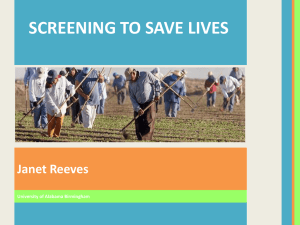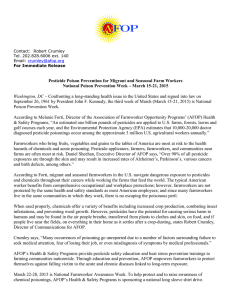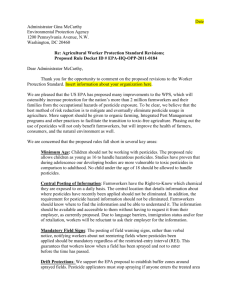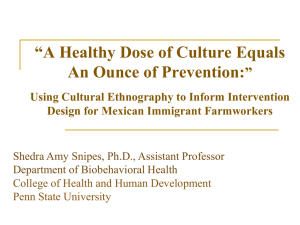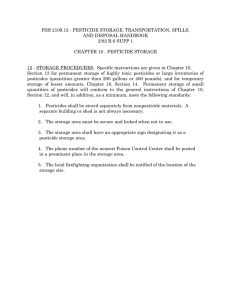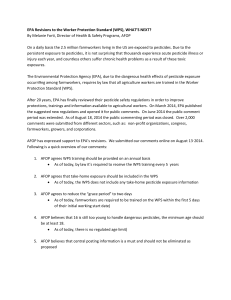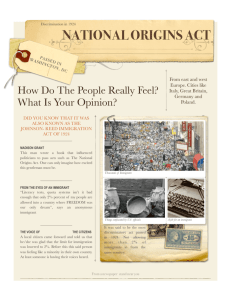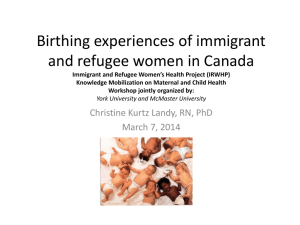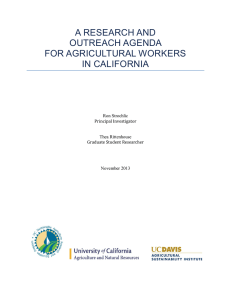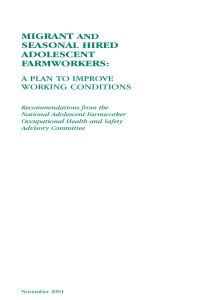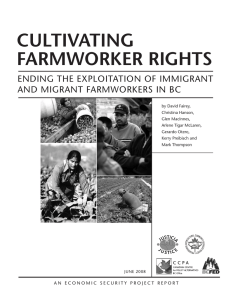A Healthy Dose of Culture Equals An Ounce of Prevention:
advertisement
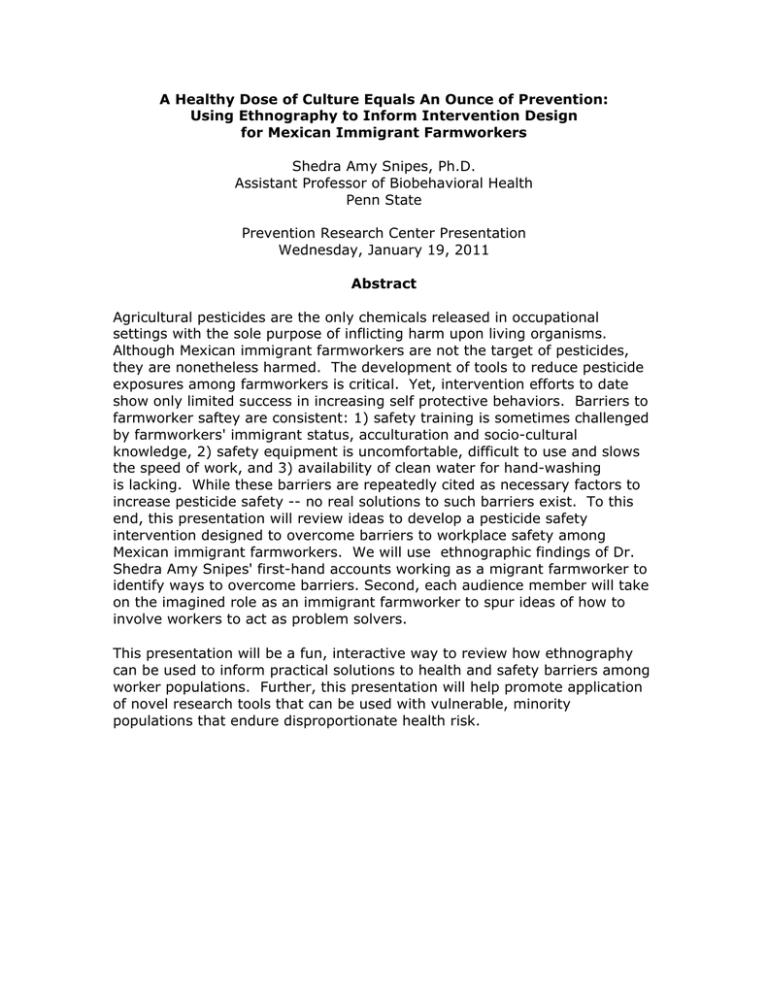
A Healthy Dose of Culture Equals An Ounce of Prevention: Using Ethnography to Inform Intervention Design for Mexican Immigrant Farmworkers Shedra Amy Snipes, Ph.D. Assistant Professor of Biobehavioral Health Penn State Prevention Research Center Presentation Wednesday, January 19, 2011 Abstract Agricultural pesticides are the only chemicals released in occupational settings with the sole purpose of inflicting harm upon living organisms. Although Mexican immigrant farmworkers are not the target of pesticides, they are nonetheless harmed. The development of tools to reduce pesticide exposures among farmworkers is critical. Yet, intervention efforts to date show only limited success in increasing self protective behaviors. Barriers to farmworker saftey are consistent: 1) safety training is sometimes challenged by farmworkers' immigrant status, acculturation and socio-cultural knowledge, 2) safety equipment is uncomfortable, difficult to use and slows the speed of work, and 3) availability of clean water for hand-washing is lacking. While these barriers are repeatedly cited as necessary factors to increase pesticide safety -- no real solutions to such barriers exist. To this end, this presentation will review ideas to develop a pesticide safety intervention designed to overcome barriers to workplace safety among Mexican immigrant farmworkers. We will use ethnographic findings of Dr. Shedra Amy Snipes' first-hand accounts working as a migrant farmworker to identify ways to overcome barriers. Second, each audience member will take on the imagined role as an immigrant farmworker to spur ideas of how to involve workers to act as problem solvers. This presentation will be a fun, interactive way to review how ethnography can be used to inform practical solutions to health and safety barriers among worker populations. Further, this presentation will help promote application of novel research tools that can be used with vulnerable, minority populations that endure disproportionate health risk.
